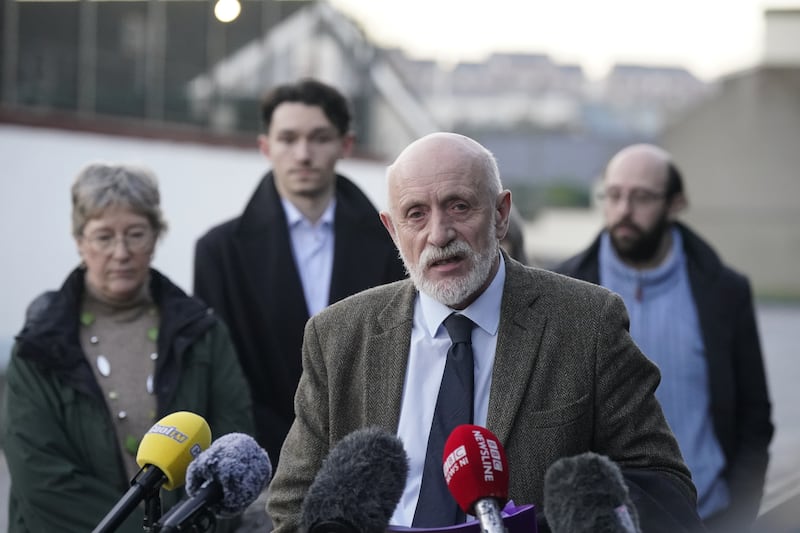AFTER the sentencing of a Belfast man who beat his wife to death with a hammer, a mental health campaigner who also lost family members has said more people will be killed without change.
Charles Little’s in-laws, Portadown couple Michael and Marjorie Cawdery (both 83), were stabbed to death in 2017 at their home by a paranoid schizophrenic, Thomas Scott McEntee.
Having walked out of a nearby hospital before the frenzied attack, an inquest later found he had sought medical help on multiple occasions in the days before.
On Thursday, Mr Little expressed his condolences to the family of Susan Baird (60), the mother-of-four brutally killed by her husband, former BBC security guard, Gary Baird at their home in the Four Winds area of Belfast in August, 2020.
Baird (65) was sentenced to seven years after pleading guilty to manslaughter with diminished responsibility, but will be released from prison this year after time already served.
During the trial, it emerged that before the attack on his wife he had made 570 calls to his GP practice for help with his mental health – with none of them answered, and that 10 days before the killing he was hospitilaised after throwing himself in front of a bin lorry.
- Health minister announces plan to tackle Northern Ireland’s ‘shocking’ health inequalitiesOpens in new window
- Gary Baird: Heartbroken family welcomes jail term for man who beat wife to death with hammerOpens in new window
- PSNI ‘apologises unreservedly’ for failings in lead-up to Cawdery killingsOpens in new window
- Family of James Hughes killed by mentally ill neighbour round on health service over 'hidden' reportOpens in new window
The Baird’s four children welcomed the sentence, adding: “Through our immense heartbreak, we hope to see improvements and better funding in mental health services across Northern Ireland.”
Speaking to the BBC, Mr Little said a passive culture in the health service of Serious Adverse Reviews into such incidents – which concluded with an email being sent between managers rather than action being taken – would only lead to more people being killed.
“For us it does bring it all back because these things never go away. It’s this aspect of seeking help and not receiving it, it really is a problem that the health service has yet to get its mind round and yet to get a grip of,” he said.

He also referenced the 2016 killing in Belfast’s Divis Tower of James Hughes (62), a former psychiatric nurse who was killed by his paranoid schizophrenic neighbour, James Devine.
“(Devine) had been contacting the Belfast Trust looking for help, and all he got was an appointment two weeks later. But that was too late.”
Stating there was an average of three mental health homicides in Northern Ireland every year and over 230 in the UK as a whole, he said it was not “infrequent” as referred to in Northern Ireland’s mental health strategy.
He also called for national police guidance for dealing with mental health incidents, Right Care Right Person, to be properly rolled out in Northern Ireland.
“Quite often the police are just tasked to an incident and they’re not the right person,” he said.
“In our case, if the right person had provided the right care on the Monday of that week, it would have involved a couple of police officers and one hospital.
“That would have got the problem solved. As it was, over the week there were 25 police officers, three hospitals and three health trusts involved over the five days and they still got it wrong.”










